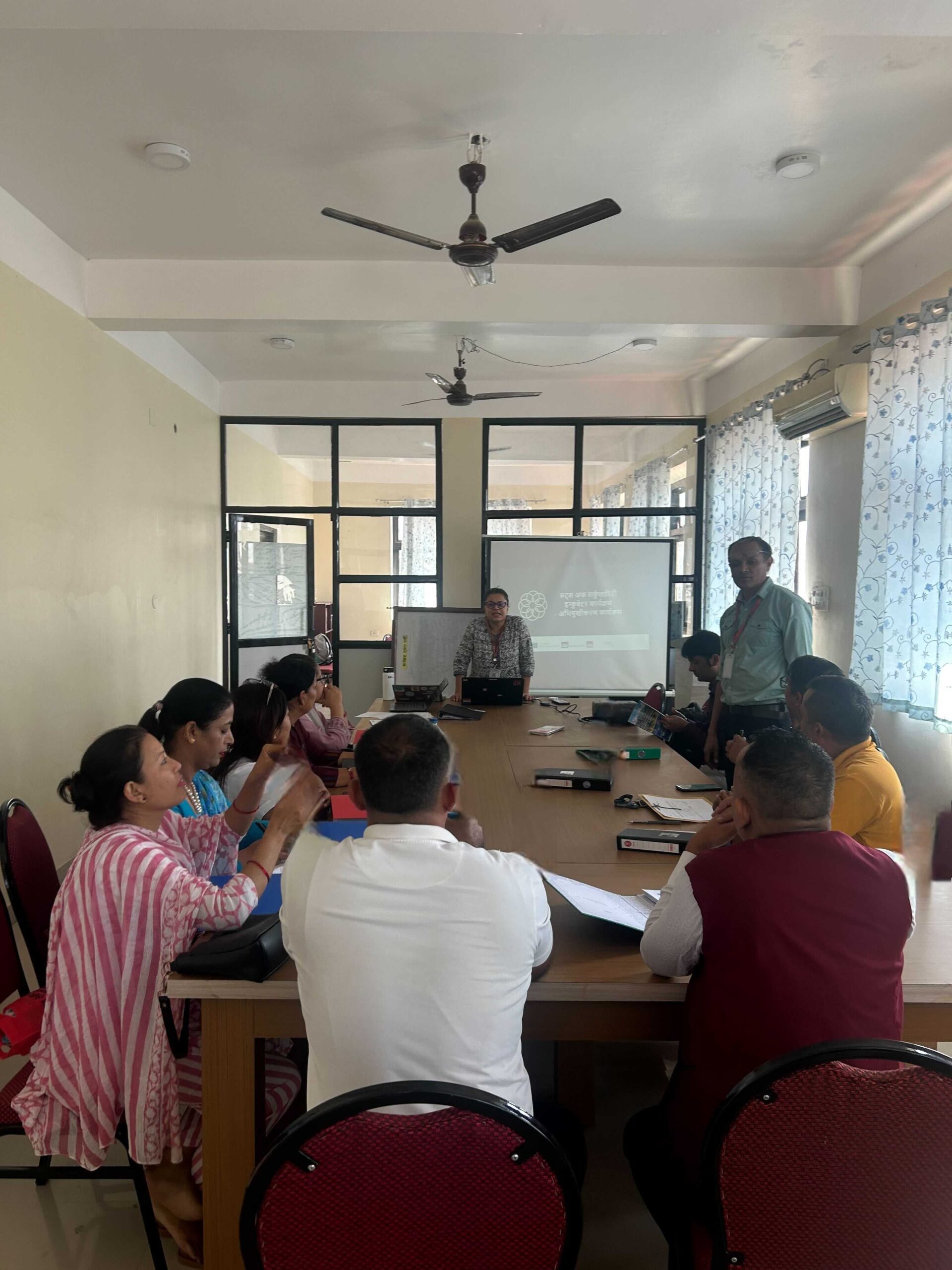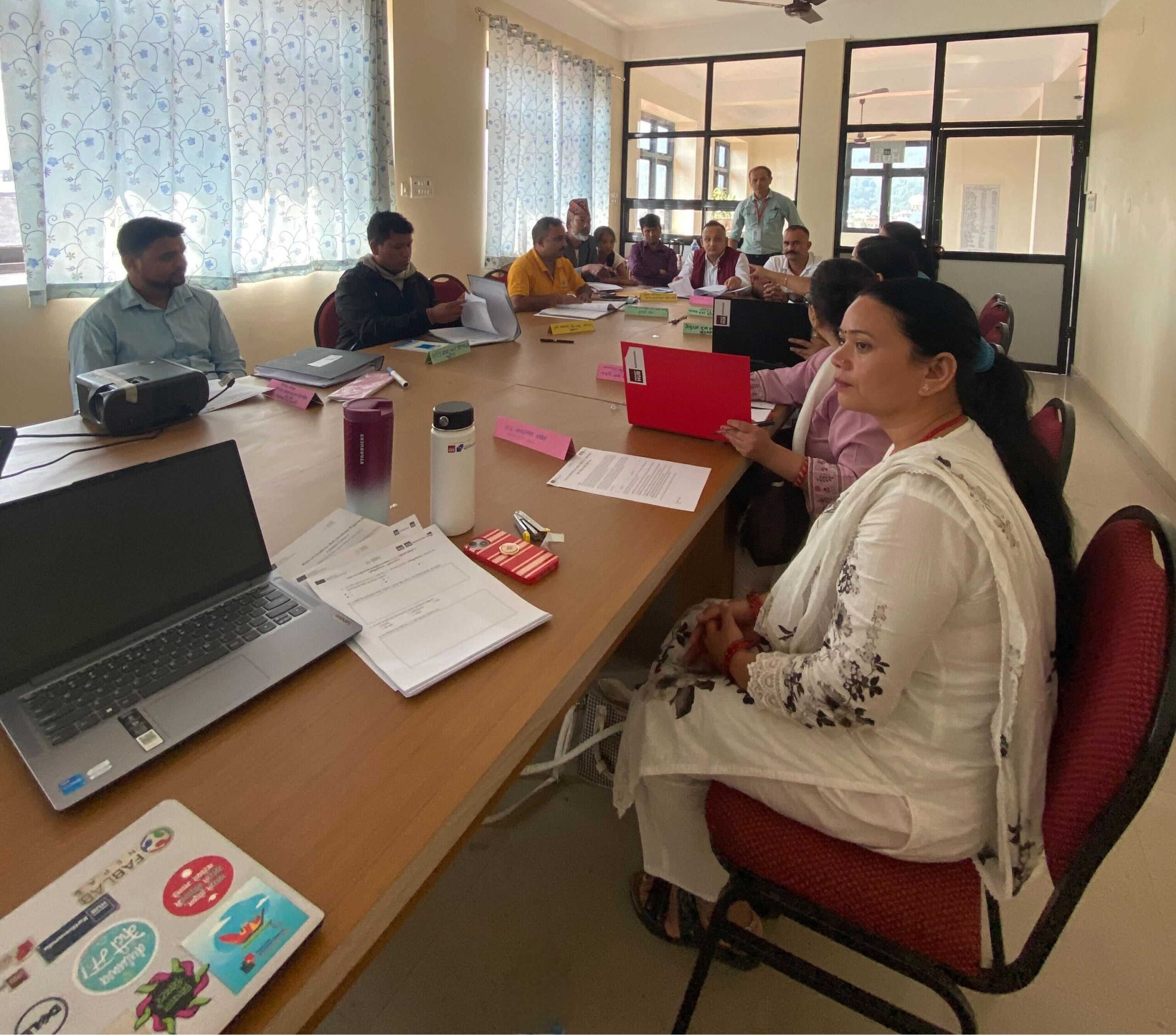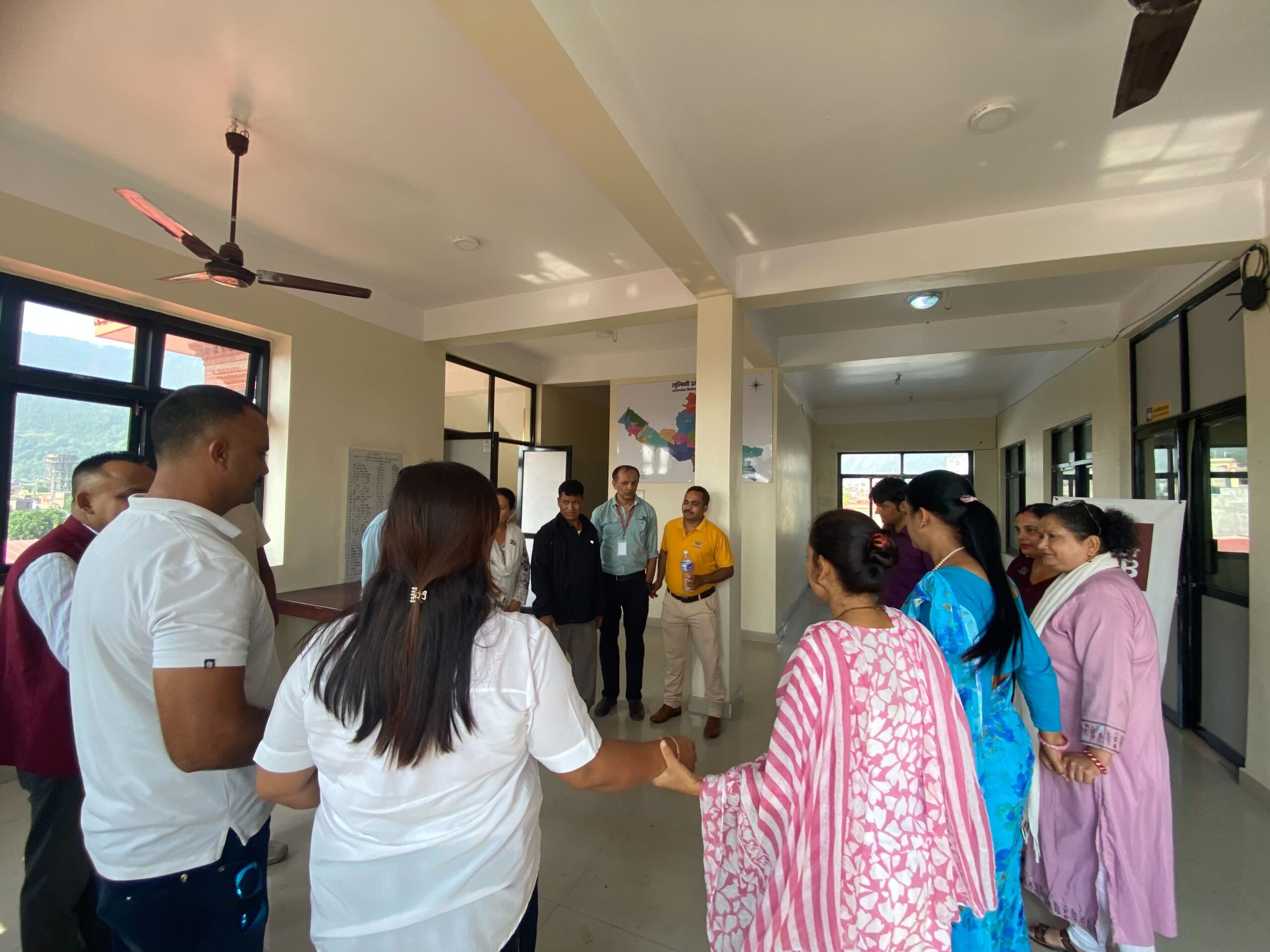
On 22 August 2024, Impact Hub Kathmandu (IHK) announced the Call for Applications for the micro and small enterprises and startups in Lumbini Province under the Roots of Circularity (RoC) Incubator Program funded by the European Union, an initiative aimed at introducing and integrating the concept of Circular Economy into the entrepreneurial ecosystem of Nepal. A total of 38 applications were received and through a 2-tier selection and evaluation process, 10 enterprises were selected for Lumbini Cohort 1.
The RoC Incubator Program orientation, held on October 22, 2024, Padmakshi Rana, Executive Director, IHK welcomed this cohort into a transformative journey of collaborative learning and skill-building aimed at fostering circular economy practices into their business models. Core mission and values of IHK, the goals, and anticipated outcomes of this incubator program, structure of their incubation experience were shared with the participants. Participants were engaged in activities designed to encourage networking and collaboration, including an icebreaker game, a snippet of IHK’s facilities, and an introduction to the guidelines, masterclasses, and business coaching that form the framework of this program. The orientation’s overarching aim was to cultivate connections among the incubatees while familiarizing them with the environment, facilitators, coaches, and the RoC program framework. This orientation and onboarding also included Masterclass 1 and 1.1 focused on “Introduction to Circular Economy” and “Developing Circular Mindset”.

Bisheshta Shrestha, Program & GEDSI Lead, emphasized that the RoC program’s toolkit which is locally contextualized, and available in English and Nepali, is developed as a tool to empower participants/incubatees to adapt and integrate principles of circularity effectively within their businesses and beyond. A highlight of the orientation included a hands-on activity led by Bisheshta Shrestha, demonstrating circular economy concepts through a playful game that emphasized the flow and sustainability of materials. The exercise illustrated how a circular economy minimizes waste, promotes resource reuse, and fosters environmental and economic resilience—a model that each participant could tailor to their business.
Participants articulated their understanding of the linear and circular economy models through the lens of regenerative thinking, highlighting the impact of resource reuse and waste reduction. The importance of embedding feedback mechanisms and fostering two-way communication among participants, which are essential for facilitating sustainable practices within their enterprises, was more emphasized. Throughout the session, an engaging dialogue, encouraging participants to brainstorm ideas and share experiences related to waste material utilization was facilitated. She introduced monthly coaching sessions designed to provide personalized support for participants’ business challenges and progress and briefed participants on a reporting template for tracking seed fund use and project progress in implementing circular economy principles.
She engaged participants/incubatees with the toolkit for the first masterclass, encouraging active use and soliciting feedback for improvement. Following this a group exercise was introduced among the incubatees where they were divided into 3 groups, each tasked with delving into a specific question: Why is a circular economy necessary? What happens if we adopt a circular economy? What are the benefits of a circular economy? After thorough discussions, participants were encouraged to present their findings with supporting rationale.

They also delved into the Butterfly Model, an approach that encourages adaptability and creativity in business operations which was led by Padmakshi Rana. This approach emphasizes the importance of connecting diverse ideas and fostering innovative solutions to challenges. As a closing remark, participants were encouraged to feel free to reach out for assistance whenever needed, reinforcing the significance of their active involvement and commitment throughout the program. She also shared that valuable opportunities are available through the Impact Hub’s global network, assuring participants that she could help facilitate connections with local, regional, and international contacts. She clarified that the RoC Impact Hub team would support participants in the design and brainstorming phases of their business solutions.
The reflection session featured insights and learning experiences from the incubatees on how they could incorporate circular economy principles into their operations. Among the participants were:
– Anju Sanitary Pad: Anju Thapa shared ideas about sourcing sustainable materials for sanitary products and minimizing waste in the manufacturing process.
– Bhavana Scaffolding Materials: Sharada Regmi Bhattarai highlighted opportunities for recycling scaffolding materials and reducing construction waste.
– Dhanavarsa Industries and Biotechnology: Sudhir Singh focused on utilizing agricultural waste as raw materials in their biotechnology processes.
– Natural Dunatapari Udhyog: Gyanu Khatri explored the possibility of using natural fibers as eco-friendly alternatives in their products.
– Prakriti Bio Fertiliser Udhyog: Hari Bhandari emphasized the importance of turning organic waste into bio-fertilizers, closing the loop in agricultural practices.
– Rapti Kapas Udyog: Suklal Rawat discussed the potential for using cotton waste to create new textile products.
– Shuva Laxmi Laboratories: Gita Paudel and Sandip Sapkota examined ways to repurpose laboratory waste materials sustainably.
– Sunrise Taps and Vulv Industries Pvt Ltd: Hiradhar Gautam shared his commitment to reducing plastic waste by exploring alternative materials for tap manufacturing.
– Tharu Kastha Kala Udyog: Anil Kumari Chaudhary discussed utilizing local wood waste for handicrafts, contributing to both sustainability and community empowerment
The Roots of Circularity (RoC) Incubator Program is designed and developed to serve as a catalyst for promoting circular economy principles among local entrepreneurs of Nepal. This initiative aims to go beyond the conventional approach and integrate the approaches of circularity as a fundamental aspect of the entrepreneurial journey. By fostering collaboration and knowledge exchange, we aspire to empower local entrepreneurs to leverage circular economy principles, making a meaningful and sustainable impact on their businesses.